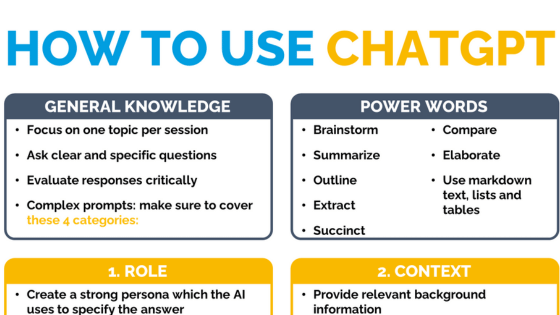If one were to draw a comparison between startups and established companies, the metaphor of a newborn versus an adult might come to mind. Just as newborns go through an incubation phase and eventually face puberty before stepping out into the world, startups embark on a similar journey. They often start in an incubator or accelerator, undergoing a period of growth, and then emerge to either organically expand or be acquired.
While this analogy is somewhat constructed, it does reveal a significant distinction between these two stages: the handling of purpose.
Startups: Embarking on Purpose-Driven Path
In my opinion, meaningfulness or purpose serves as the bedrock upon which a company's vision is built. This vision, in turn, acts as a guiding light for the company's mission and objectives. Much like a solid block of granite, guided by core values, purpose defines why a company exists. —At least, it should!

Photo by Nick Fewings via Unsplash
Regrettably, companies with a well-defined purpose are the exception rather than the norm. A study conducted by Harvard Business Review Analytic Services unveils that nearly half of the surveyed executives (48%) believed that their company's purpose was better comprehended in certain areas of the organization than in others. Furthermore, 13% admitted that the purpose was neither well grasped nor effectively communicated.
Shaping Purpose Through Emotional Instincts
Referring back to the earlier comparison without any disrespect intended toward Startups being likened to children and mature companies to adults: Speaking to a child using the same language, tone, and terminology as one would with an adult doesn't yield the same outcome (and for those without kids, it rarely does, in fact...).
However, what can prove effective is appealing to their instincts, gut feelings, and emotions. Similar to the Startup itself, where initial decisions are often driven by emotions (partly due to the scarcity of data and information), and the primary measurable KPI at the outset is their runway, we might need to approach the question of guiding Startups on the significance of vision, mission, purpose, and values from a more emotional standpoint.
My hypothesis suggests either discovering a "connective language" to translate emotions into rationales or partially disregarding language and focusing on elements that resist rationalization, thus transcending conventional language. This approach centers on addressing what cannot be rationalized and lacks language - a pursuit focused on unraveling the reasons behind the actions of those we consult, mentor, or coach.
In contrast to established companies, which often "operate on highly rational terms" by emphasizing how they excel over competitors and their unique differentiators, Startups possess an extraordinary opportunity from the outset. They can avoid the trap of solely addressing existential questions with rationality. Instead, they can immediately explore aligning all their endeavors with emotional values—both internally and externally. Therefore, to articulate the significance of their existence to themselves and others and to act in harmony, Startups have the chance (and perhaps even the responsibility) to follow their gut feelings, their instincts. This approach not only accelerates decision-making but also provides a substantial advantage over those who relentlessly attempt to rationalize everything.
When communicating and defining their purpose as a company, Startups trigger a response in the limbic system of potential customers, employees, partners, and even to some extent, investors. This is when "the magic" takes place: Trust can be established instantly. Even those who may be hesitant to embrace innovation and change will feel acknowledged and addressed. The depth of loyalty and trust stems from this foundation of trust and is shaped by how effectively and effortlessly we can connect with the purpose of others.
From Values to Vision
Purpose serves as the bedrock upon which your company's vision is built, thus influencing every step of the mission you and your colleagues undertake. This signifies that each stride on your journey should ideally be propelled by the core values shared among you and your team. In essence, if your vision isn't rooted in purpose, it lacks meaning.
It's crucial to bear in mind that the rationale behind your actions, driven by your purpose, is often deeply intertwined with your core values.
However, an inherent challenge arises: Since these values are uniquely yours, it's not feasible for others to articulate or formulate them. Yet, because you're an integral part of the system, objectivity in formulating your own values becomes nearly unattainable, given their strong emotional ties. After all, who can assert to discuss personal emotions objectively?
The allure of believing that you only need to enumerate a list of values is strong. "Yes, this is the kind of company we want to be, this is how we want to interact, and this is the essence we want our brand to exude."
However, because culture isn't something that can be designed from scratch, the unfortunate reality often unfolds: The values prominently displayed on walls are the ones that are actually lacking.
On a positive note, values evolve over time; many of my own personal values from 20 years ago differ from those of today. Given that Startup founders need not wait two decades to refine their values, it's perfectly acceptable to begin somewhere and then progressively shape your values as the Startup itself evolves. Furthermore, we've identified a method for developing your purpose based on your values, which then paves the way for crafting a compelling vision. This vision, in turn, aids in delineating your mission, objectives, and the strategy to realize them.
This is not a solitary endeavor and certainly not a task achievable within a mere two hours. Nevertheless, we firmly believe that this approach is immensely valuable for commencing the process of formulating an inspiring, concise, aspirational, yet precisely defined vision.
Navigating Purpose: The 9-Step Path in a Nutshell
1. Identify Vital Categories: Begin by defining up to 10 categories that hold significance not only personally but also for the business.
2. Associate with Adjectives: Describe your associations with each category, using as many adjectives as necessary.
3. Select Powerful Adjectives: Prioritize the three adjectives that most strongly resonate with you, crafting two comprehensive sentences—one for your organization and yourself, and one for potential customers.
4. Uncover Core Values: Determine the core values that underlie each sentence you've constructed.
5. Share, Discuss, Prioritize: Collaboratively share and prioritize the extracted values, shaping your core values with guided questions.
6. Formulate Purpose Statements: Utilizing these core values, articulate purpose statements that serve as guiding beacons for creating vibrant visionary snapshots.
7. Translate into Vision: Transform these vivid snapshots into a cohesive vision, employing another set of questions to guide the process.
8. Craft Long-Term Goals: Within this journey, create a set of long-term goals that encapsulate the vibrant descriptions and link back to the core purpose.
9. Define Operational Milestones: Anchored by your vision, establish operational milestones—the mission—to achieve these enduring goals.
Through this meticulous work and the creation of these statements, you not only convey your business's essence to the world but also offer a compass for employees, partners, and consumers. This compass helps them align their decisions with their values. The significance of a clear "why" extends to fostering brand loyalty and enhancing employee engagement. Employees, aware that their efforts transcend mere profit generation and contribute to the company's intended impact, are inclined to be more engaged and fulfilled in their roles. Moreover, these statements establish well-defined guidelines for making informed, far-reaching decisions that benefit the company holistically.







/RootCamp_Logo-Ecosystem.png?width=200&name=RootCamp_Logo-Ecosystem.png)
/Bitroad_Logo-Ecosystem.png?width=200&name=Bitroad_Logo-Ecosystem.png)



/White%20Versions/stadt_leipzig_white.png?width=130&name=stadt_leipzig_white.png)
/lfca_white.png?width=119&name=lfca_white.png)
/bmwi-white-engl-2022.png?width=573&name=bmwi-white-engl-2022.png)
/White%20Versions/sachsen_signet_white.png?width=90&height=362&name=sachsen_signet_white.png)